Bewitching armpits, steamy seniors and ‘80s time loops… That’s a wrap on the annual Toronto International Film Festival, always a good indicator of trends in queer and trans filmmaking, as well as a first look at many of the movies that will make award runs and year-end best-of lists. Barry Jenkins’ Moonlight had its world premiere at TIFF in 2016, and Sebastián Lelio’s A Fantastic Woman and Disobedience both played at TIFF in 2017. While this year’s fest had few big movies with queer or trans protagonists, it did showcase a variety of queer and trans characters and narratives, many hearkening back to earlier eras or to themes from movies past. Below, a round-up of LGBTQ2 highlights from TIFF 2019.
A slowburning lesbian costume drama brings the heat
It’s an unlikely plot and setting for one of the festival’s sexiest picks, but the French feature Portrait of a Lady on Fire sizzles with a decidedly queer female gaze. Céline Sciamma’s film, winner of Cannes’ best screenplay prize and the Queer Palm, takes place in 18th century Brittany at a remote manor, where a painter Marianne (Noémie Merlant) has been hired to create a portrait of a noblewoman Héloïse (Adèle Haenel) to entice a potential husband in Milan. And so begins a slow, thrilling seduction with little hope of a fairy-tale ending, given the social and economic circumstances of these women’s lives. But the journey is mesmerizing. Cue the comparisons to Call Me By Your Name. Hot take: unshaven armpits are the new peaches. And be sure to bring tissues for the exquisite, lingering final take on Héloïse’s face as she listens to a symphony in a closing scene that rivals the powerful intimacy of Elio’s fireside tears.
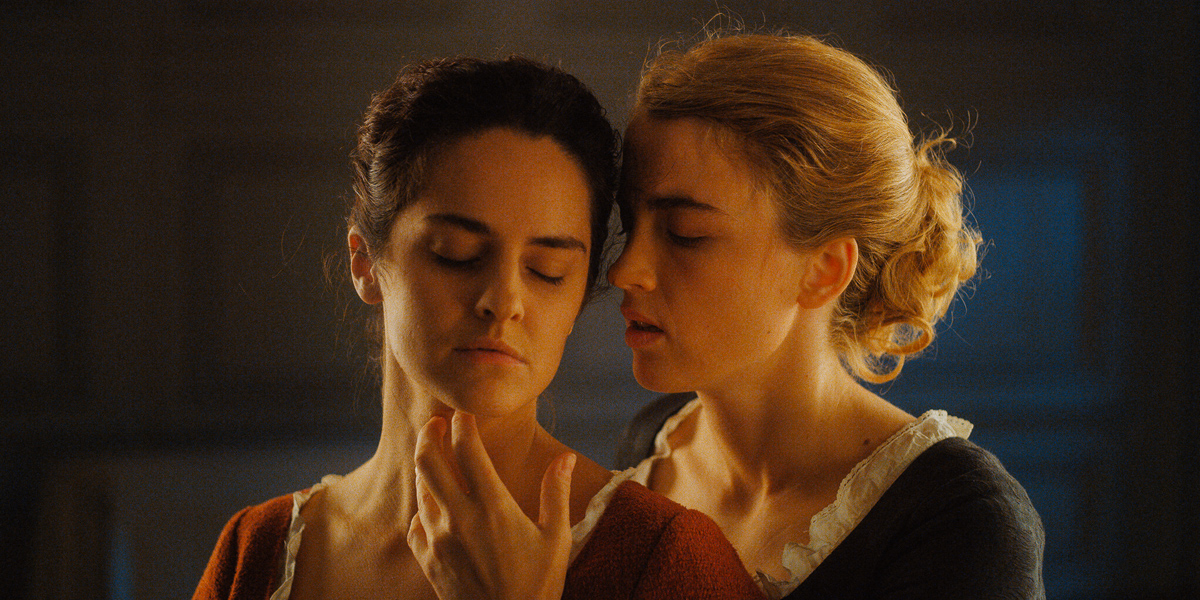
Gay and trans characters served on the side
The 1980s are back! No, I’m not talking high-waisted jeans, crop-tops and asymmetrical bobs — but rather a string of high-profile Hollywood and European films that seem to turn back the calendar 30-plus years by resurrecting common queer tropes from that era. The most blatant of these at this year’s festival was the ubiquity of the classic gay best friend, or in some cases, the LGBTQ2 sidekick. Examples include: Laurie Kynaston as the gay younger brother to Beanie Feldstein in the hilarious coming-of-age flick How to Build a Girl; Pascal Greggory as the ex-husband to Isabelle Huppert’s title character in Ira Sach’s beautifully observed family drama Frankie; Jen Richards’s trans creative writing instructor in the HBO comedy Mrs. Fletcher starring Kathryn Hahn; and the fictional gay couple inserted into Rupert Goold’s stirring Judy Garland biopic Judy, starring Renée Zellweger in a stunning performance.
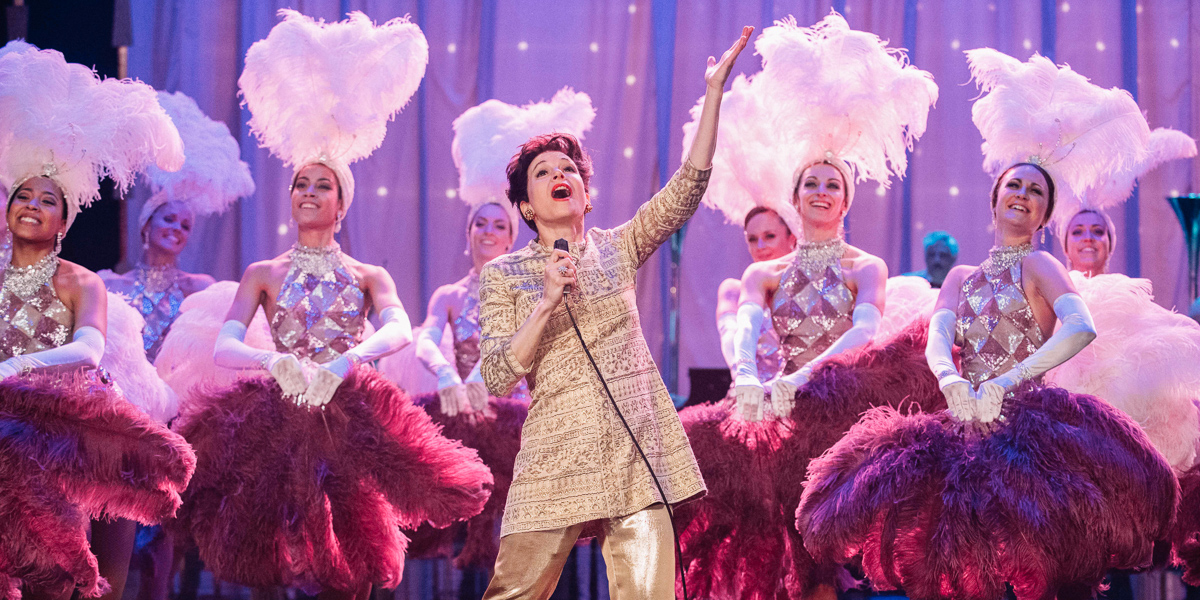
The return of the queer sociopath
Another old movie trope given a fresh twist at the festival is the gay sociopath. Though lacking the murderous frisson of 1980’s Cruising or 1992’s Basic Instinct, the closeted gay male protagonist of Bad Education is thrillingly amoral. Based on the true story of the American school system’s biggest-ever embezzlement scandal, this entertaining film helmed by Cory Finley shows how small deceptions and slips of judgment can become major crimes and misdemeanors. At the centre is Frank Tassone (played with gusto by Hugh Jackman), who has no qualms about stealing millions from school kids and throwing his co-conspirator (a wonderfully oblivious Allison Janney) under the bus. The film’s timing is bang on, coming on the heels of the elite college admissions fraud scandal. But it can also be seen as a mocking indictment of Donald Trump’s “America First” exceptionalism and a country increasingly unmoored from its moral underpinnings.
Age and beauty
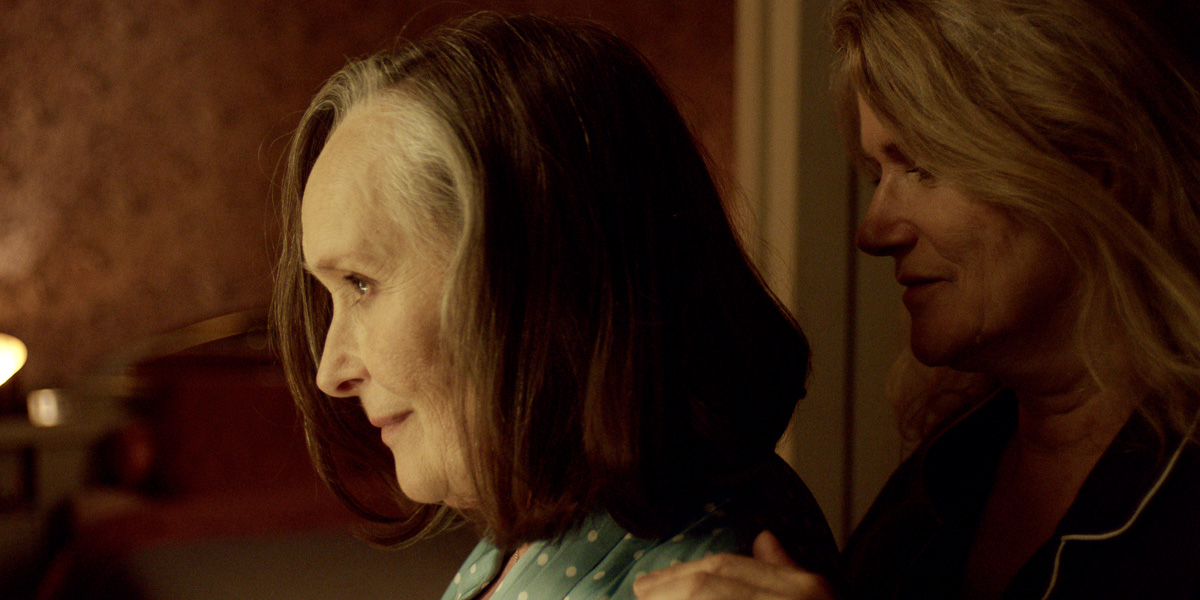
There are two fantastic films focused on the lives of gay men and lesbians in their 60s and 70s. In the French film, Two of Us, by first-time feature director Filippo Meneghetti, Barbara Sukowa and Martine Chevalier play a pair of older women in a passionate but secretive years-long relationship. When one suffers a stroke that leaves her without the ability to communicate, her biological family swoops in, unaware of the extra suffering they are causing by separating the couple. Part Fatal Attraction, part Thelma and Louise, viewers never know where this tautly-constructed film is going nor to what extremes a desperate woman might venture to protect her partner. Pedro Almodóvar’s latest masterpiece Pain and Glory tells the story of Salvador Mallo (Antonio Banderas, in one of his best-ever performances), an aging film director struggling with chronic pain, depression and addiction. Can he find the will to live, and to create, again? This is a thinly veiled depiction of Almodóvar himself, so we know the answer: it’s this beautiful, mature work. Together, these two films offer a reflection of the often unseen experience of LGBTQ2 seniors. This is a particularly meaningful development for gay men of a certain age, whose elders were largely wiped out by the AIDS crisis in the 1980s and early ‘90s. We all need role models to show us how to age, both gracefully and fiercely.
A look at how gay men once owned the future…
Witness three giants of modern art, all of them gay, as they enjoy 30 years of collaboration and experimentation in Cunningham, Alla Kovgan’s visually resplendent 3D documentary on Merce Cunningham, the dancer and choreographer who revolutionized modern dance in the mid-20th century. Cunningham’s main collaborators were composer John Cage (he and Cunningham were lovers for 50 years, until Cage’s death in 1992) and painter Robert Rauschenberg, both revolutionaries in their own rights. Though all three were famously discreet about their sexuality, in their art, anything was possible.The future was wide open and they owned it.
And a look at how the future now belongs to women of colour
Lesbian activist and actor turned-director Ellen Page uses her fame to strong advantage in the documentary There’s Something in the Water, co-directed with her Gaycation collaborator Ian Daniel. The film concisely makes the case that in Page’s home province of Nova Scotia, poor, disadvantaged communities pay the harshest price for environmental degradation. By focusing on three communities and the passionate Black and Indigenous women on the frontlines of local environmental action, Page and Daniel have crafted profound look at the power of intersectionality.
The Obituary of Tunde Johnson introduces a new talent
When Nigerian-born University of Southern California student Stanley Kalu was just 19, he wrote a screenplay that would go on to win a major competition — and $1-million towards production costs — to make his debut film. It was a dream come true, but his film, The Obituary of Tunde Johnson, tells a nightmare-ish story about American racism and homophobia. Directed by Ali LeRoi (Everybody Hates Chris), it stars Steven Silver as Tunde, a gay prep school student and son of wealthy Nigerian immigrants, who is killed by police after a routine roadside stop. But then in a Russian Doll (or Groundhog’s Day) twist, Tunde awakens; his last dying gasp becomes the first gasping breath of a new day. The loop restarts, each time playing with different points of view and subtle plot changes. Like Tunde, viewers cannot escape the horror and inevitability of racist, queer-phobic violence in America. An important, powerful film.
Most terrifying use of drag
Men wearing dresses becomes a potent symbol in True Story of the Kelly Gang, Justin Kurzel’s brutal, brooding biopic of the real-life, but much mythologized, 19th-century Australian bushranger and outlaw. Based on Peter Carey’s Booker-winning novel, Kelly and his gang wear dresses to enhance their reputation for volatility (wearing women’s dresses unsettles their enemies, as one character explains, because “nothing scares a man like crazy”). The dresses also connect them to a radical Irish tradition of male gangs who used female dress to show their disdain toward British imperialists and their moral order. Brimming with homoerotic subtext, True Story hints at the anxiety and the precariousness of Australia’s famously macho masculinity.
Being first matters
The documentary The Capote Tapes offers an insightful appraisal of the life and works of Truman Capote, the enigmatic author who, for a time, became more famous for being famous than for his groundbreaking books like Breakfast at Tiffany’s and In Cold Blood. Built upon hitherto unheard audio interviews by writer George Plimpton with numerous friends and contemporaries, including socialite Babe Paley, writer Norman Mailer and Capote’s lover Jack Dunphy, Ebs Burnough’s doc reminds us of the rarity of Capote. With his pipsqueak voice, rapier wit and queenly ways (“a little faggot prince,” says Mailer with grudging hetero admiration), Capote hit the best-seller list in 1948 with the publication of Other Voices, Other Rooms. The semi-autobiographical novel bristled with explicit gay content. Abandoned by his mother and raised in poverty, Capote was taken up by New York’s high society. Think of how much effort and courage that reinvention required, muses author Colm Tóibín. When Capote looked at himself, “there was no one in the mirror.”
School of hard knocks
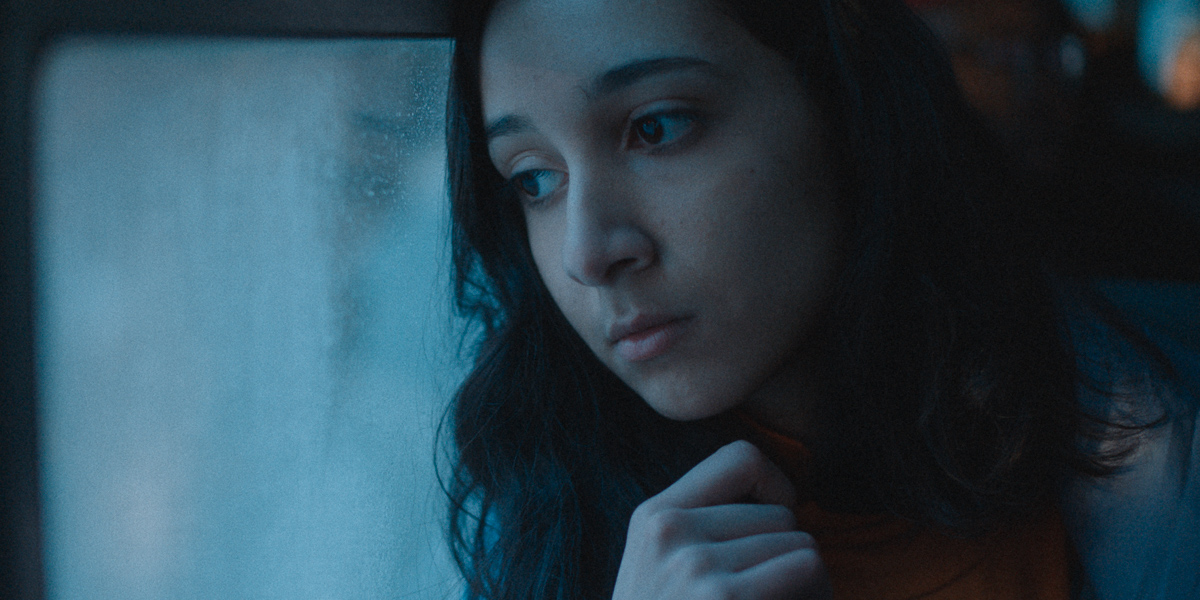
An immigrant youth narrates the story of a Lebanese-Canadian classmate named Delphine — first at a private elementary, then a public high school — in Chloé Robichaud’s enigmatic short Delphine. The narrator’s observations reveal a strange connection to Delphine, a sense of identification, perhaps even admiration. This mysterious view into a hardscrabble world of wonder and dread from lesbian director Robichaud won TIFF’s best Canadian short film prize.
Canada is totally queer
The Twentieth Century is an absurdist, perverted laugh-riot that proves Canada to be one of the queerest places on the planet. Never mind that director Matthew Rankin’s debut feature foregoes exploring the very real possibility that William Lyon Mackenzie King, Canada’s longest serving prime minister and committed bachelor, was gay. Why bother when instead Rankin can conjure up an eye-popping dystopian fantasy about a masturbating boot-fetishist tapped to become the “vice-regal candidate” for prime minister after a series of bizarre contests like leg wrestling, “whack-a-mole” baby seal clubbing and identifying tree species by smell? The film feels like the love child of Margaret Atwood and filmmaker Guy Maddin — one of the wildest celebrations of off-kilter Canadianness imaginable. And as a bonus, Maddin’s queer muse Louis Negin is in drag playing King’s mother! A must-see — and winner of best Canadian first feature film.
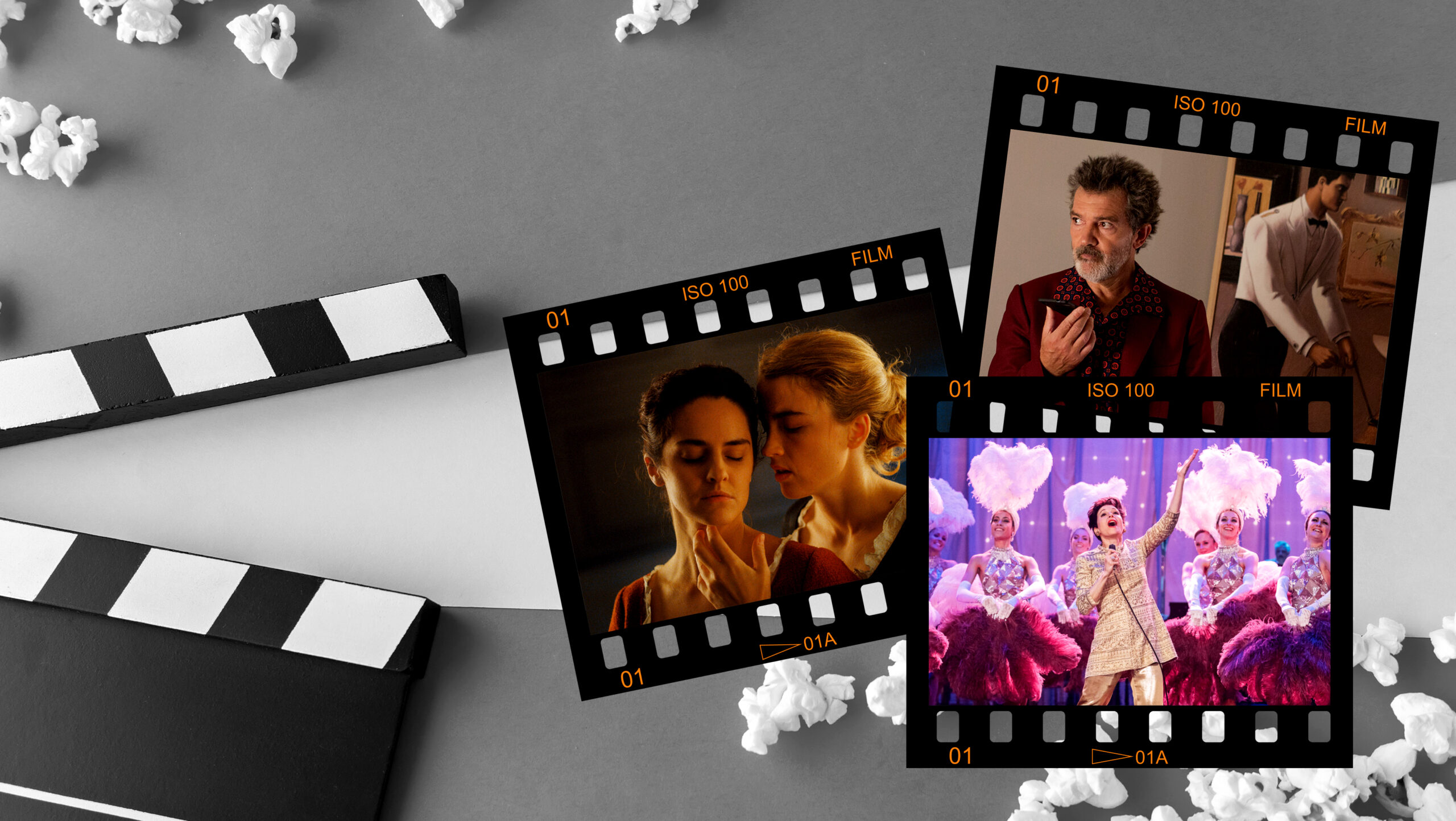

 Why you can trust Xtra
Why you can trust Xtra


